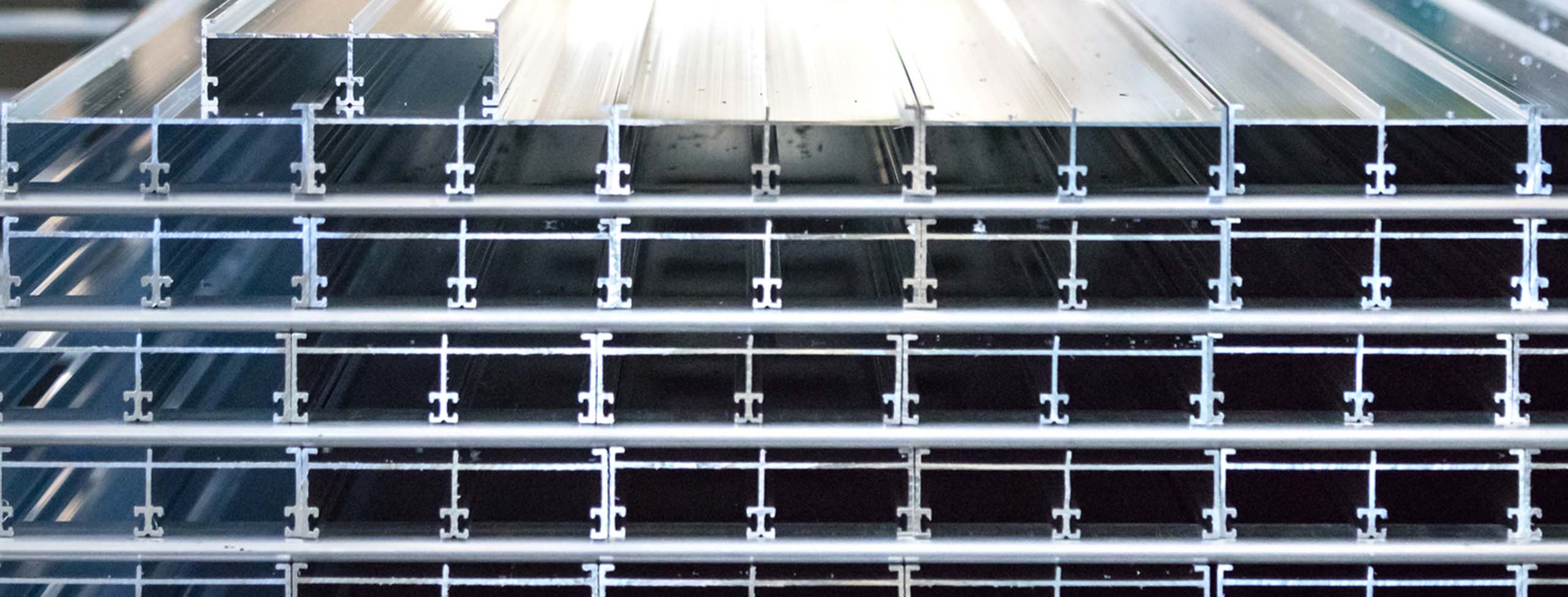
26 April 2024 • 8 minute read
Industrials Regulatory News and Trends - April 26, 2024
Welcome to Industrials Regulatory News and Trends. In this regular bulletin, DLA Piper lawyers provide concise updates on key developments in the industrials sector to help you navigate the ever-changing business, legal, and regulatory landscape.
Global plastics treaty talks – this week in Ottawa. Scientists, diplomats, and stakeholders from around the world are convening in Ottawa this week in the fourth of five rounds of negotiations to craft an international treaty on plastic pollution. More than 4,000 delegates from 175 countries are attending attend the week-long summit, which ends April 29. The goal is to create a legally binding instrument that addresses the full life cycle of plastics: how much plastic is produced, how it is used, and how it is discarded. This fourth stage of negotiations intends to result in text that could be finalized at the fifth, final session, taking place in December in Seoul. Luis Vayas Valdivieso, summit chair, said he will he divide the national delegates into seven working groups to tackle key unresolved issues, in particular what the treaty should include and how it should be implemented. He said that while overcoming the impasse between plastic-producing countries and countries that want to reduce plastic pollution will be a challenge, “we have to face those challenges and work with them. Compromise is an important word that we need to take into account.” He continued, “It is very important we are negotiating this treaty now. The world is in a triple crisis of climate change, biodiversity loss and pollution. But while there are agreements in place for the first two, we have no legislation, no global agreement on plastic pollution.”
Biden Administration announces new zero emissions strategy for freight sector, including $1.5 billion in grant opportunities. On April 24, 2024, the Biden Administration announced a national goal of transitioning to zero greenhouse gas emissions for US truck, rail, aviation, and marine freight transportation. The administration also announced that it is developing a decarbonization strategy that focuses on “air pollution hot spots” and “community groups that have frontline experience with air pollution from the freight sector.” In conjunction with that announcement, the Environmental Protection Agency announced nearly $1 billion in funding for replacing Class 6 and 7 heavy-duty internal combustion and diesel engine vehicles (eg, school buses, trash trucks, delivery trucks) with zero-emission vehicles. The Department of Transportation announced approximately $400 million in funding under its Port Facilities Grant Program, aimed at reducing air pollution at ports, and the Department of Energy announced a $72 million investment in its “SuperTruck: Charged” program, to demonstrate how vehicle-grid integration may facilitate provision of affordable and reliable charging at truck stops and depots and enhance grid resiliency. These initiatives are part of the administration’s previously announced goal of achieving net-zero emissions from the US transportation sector by 2050.
North Carolina approves lithium mine. On April 15, North Carolina state regulators approved a state mining permit for Piedmont Lithium to develop one of the largest domestic sources of lithium, a metal crucial for the production of batteries for electric vehicles. The North Carolina Department of Environmental Quality has conditioned approval for tapping the large lithium deposit outside Charlotte on the posting of a $1 million reclamation bond. State officials are also requiring the company to conduct regular water quality and water table levels tests and to line a waste storage pit with a synthetic liner, a departure from the typical requirement for an earthen liner. Piedmont must still obtain a local zoning variance and financing for the project, which it is estimated will cost more than $1 billion. The company has applied for US Department of Energy loans. Meanwhile, Chile has taken a major step forward in its National Lithium Strategy – our alert tells you more.
Price of copper. The price of copper continues to climb as traders bet that mining will not be able to pace global demand for the metal. Copper, Bank of America said, is “at the epicentre of the energy transition” – essential in the manufacture of electric vehicles, wind turbines, and power grids – “which means that the lack of mine supply growth is being felt acutely.” On April 22, copper traded near $10,000 a ton, hitting a new two-year high. Analysts at Citi recently stated, “Explosive price upside is possible over the next 2-3 years too, if a strong cyclical recovery occurs at any time, with prices potentially rising more than 2/3rds to $15k/t+ in this, our bull case scenario.”
Steel. Speaking in Pittsburgh at the headquarters of the United Steelworkers, President Joe Biden said he is aiming to raise tariffs on imports of Chinese steel and aluminum. In his April 17 remarks, the President said he has asked the US Trade Representative, Katherine Tai, to act, with the goal of tripling tariffs for Chinese steel and aluminum – at present, those tariffs average 7.5 percent. Such imports are also subject to additional Section 232 tariffs, meaning that the cumulative tariff on Chinese steel would rise to 50 percent and that on Chinese aluminum to 35 percent. During his remarks, President Biden also suggested his Administration would block the acquisition of US Steel by Nippon Steel. He said it is “vital” for US Steel “to remain an American steel company that is domestically owned and operated.” On April 12, shareholders of US Steel approved the company’s sale to Nippon Steel for $14.1 billion in cash. More than 98 percent of shareholders voted in favor of the sale. Early this year, Bloomberg News reported that a review of the proposed takeover by the Committee on Foreign Investment in the US (CFIUS) (the process through which the Administration could assert jurisdiction to block the acquisition) is unlikely to conclude until late 2024 and may extend into 2025. Partly in response to the billions of dollars of infrastructure spending and of solar-power and wind-power investment fostered by the Biden Administration, the US steel industry has been expanding rapidly.
Volkswagen workers vote to join UAW. On April 19, workers at Volkswagen of America's plant in Chattanooga, Tennessee voted overwhelmingly to join the United Auto Workers. This is first time workers at an auto plant operated by a foreign auto company (or its subsidiary) in the southern US have voted to unionize. Nearly three-quarters cast votes in favor of the UAW. In advance of the vote, the governors of six southern states – Bill Lee of Tennessee, Kay Ivey of Alabama, Brian Kemp of Georgia, Tate Reeves of Mississippi, Henry McMaster of South Carolina, and Greg Abbott of Texas – issued a joint letter denouncing the UAW as “special interests looking to come into our state and threaten our jobs.” On April 22, UAW President Shawn Fain replied that those governors were the ones “wrecking the economy because they don’t care about working people having a decent wage. It’s working-class people who move the economy.” Fain then said the VW workers now need to focus on the bargaining process for their first union contract. The Tennessee plant was Volkswagen’s only facility worldwide without union representation. Next up: on May 13, Mercedes-Benz workers in Alabama vote on whether to unionize.
California’s next step in implementing landmark plastic pollution law focuses on single-use plastic packaging. California has unveiled draft regulations aimed at curbing single-use plastic waste within the state. The regulations would place significant and specific requirements on plastic packaging producers to enhance design and create end markets for recycled material, with penalties for noncompliance. As incentives, the regulations would offer $55 million in grants for companies pursuing these aims. See our alert.
PFAS. The EPA recently finalized two rules concerning per-and polyfluoroalkyl substances (PFAS). On April 19, EPA Administrator Michael Regan reported that EPA had finalized a rule designating two PFAS – PFOA and PFOS – as hazardous substances under the Comprehensive Environmental Response, Compensation, and Liability Act (CERCLA), also known as Superfund. On April 10, EPA announced the final National Primary Drinking Water Regulation (NPDWR) for six PFAS – PFOA, PFOS, PFHxS, PFPO-DA (GenX) and PFBS (as a mixture). Details on these rules can be found on the EPA’s website, here.
Consumer industry association calls for passage of two national recycling bills. On April 22, the Consumer Brands Association, a major trade group that represents 10 percent of the US domestic product, announced that it is calling for the US House of Representatives to follow the US Senate’s lead in passing a two-pronged bipartisan effort to address nationwide recycling challenges. The current bills in Congress include the Recycling Infrastructure and Accessibility Act and the Recycling and Composting Accountability Act, both of which have passed the Senate unanimously. The first bill, the RIAA, would provide businesses with crucial data needed for innovation, inform investments in recycling infrastructure, and create a space for the federal government to play an important role in the value chain. The second bill, the RCAA, would create a pilot program to improve recycling infrastructure in rural and underserved communities.


